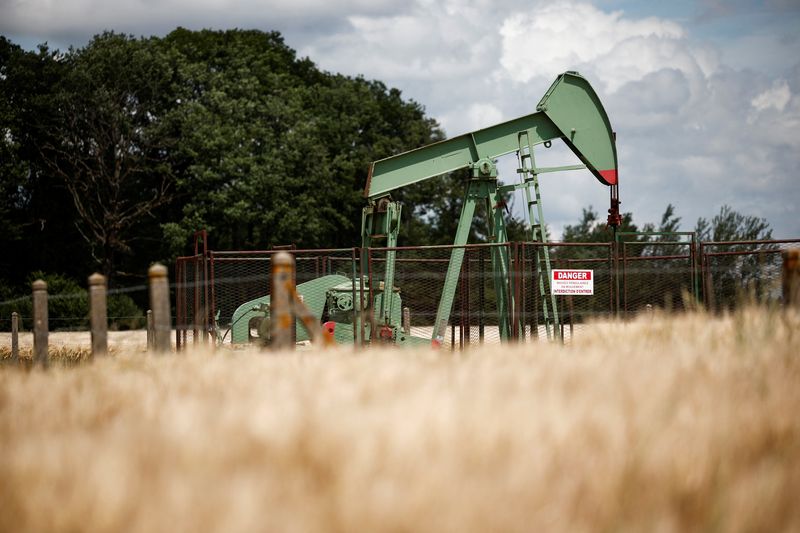Oil falls as global equities selloff offsets rising Middle East tensions

By Erwin Seba
HOUSTON (Reuters) -Oil fell in volatile trade on Monday as a selloff continued on global stock markets, but the slide was limited by fears Iran’s retaliation for the assassination of a Hamas leader in Tehran may lead to a wider war in the Middle East.
futures settled down 51 cents, or 0.66%, at $76.30 a barrel, with prices earlier trading around their lowest levels since January. U.S. West Texas Intermediate crude was down 58 cents, or 0.79%, at $72.94.
Equities markets tumbled from Asia to North America as investors fled riskier assets while wagering that rapid interest rate cuts by the Federal Reserve will be needed to drive U.S. economic growth.
“The stock market was falling as the (Friday) jobs report has the market convinced that the Fed once again fell behind the curve,” Phil Flynn, senior analyst with Price Futures Group, wrote in a morning note.
Worries over further possible supply disruptions from a wider Middle East war limited oil’s losses throughout the day.
Israel and the U.S. are bracing for a serious escalation in the region after Iran and its allies Hamas and Hezbollah pledged to retaliate against Israel for the killings of Hamas leader Ismail Haniyeh and a top Hezbollah military commander last week.
Oil traders are expecting Iran’s response to be short in duration, making crude futures more vulnerable to fears of a U.S. recession like those that roiled markets on Monday, said John Kilduff, founding partner of Again Capital LLC.

“If this passes quickly, prices will join this enormous dour party and prices will spiral out of control,” Kilduff said.
Slumping diesel consumption in China, the world’s biggest contributor to oil demand growth, is also weighing on oil.





